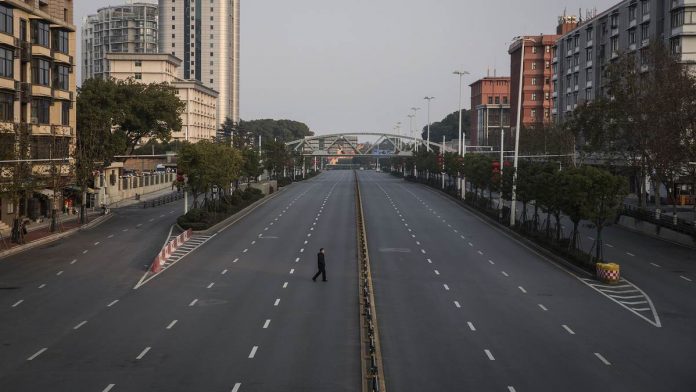By Dr. Rais Hussin
AS this is written, China has placed the Covid-19 pandemic in Wuhan under control, if not the whole country.
This is quite a feat for a population of 1.3 billion and should be complimented. But how China is praised should also be done in a spirit of critical scholarship, meaning shortcomings should be flagged.
Only in this way can one understand the extent to which China can save the world or not — Malaysia included — with China embarking on an ambitious global health diplomacy to help “flatten the curve”.
First, China has done a good job of quarantining its population between Jan 23 and the end of March. But one should remember it was Wuhan alone that was on full lockdown, followed by other provinces but not the entire country. Second, China has dismissed huge conspiracy theories that this was the act of some bio weaponry warfare to attack its growing economic clout. A credible but concurrently incredulous too.
Covid-19 has hit the United States, Spain, Italy, the United Kingdom and France. China can save the world if the leadership in Beijing focuses on solving Covid-19 rather than why the West has tried to pull the carpet from under China’s feet once again. So far, while the Chinese social media has not stopped speculating on a biological war from the West, it is admirable that Chinese leadership has not indulged in it.
Third, China released the genome of Covid-19 as early as the third week of January to allow scientists from around the world to study the genome of SARS Cov II, the virus that triggers the sickness of Covid-19, but somehow the disconnect between the scientists and the decision makers in the West, especially the latter, has delayed a robust response.
However, it is vital that one holds China to account for not alerting the World Health Organisation (WHO) of the serious nature of the Wuhan outbreak. Scholars will wonder why wasn’t China alerting the world to the dangers as early as November last year?
Indeed, if only China allowed Taiwan or Hong Kong to speak up. Both had experienced the seriousness of the Severe Acute Respiratory Syndrome in 2002. The world would have taken this problem more seriously, especially if Dr Helen Chan, the former director-general of WHO, who had handled SARS successfully, been allowed to be the key person to speak of the danger.
Having retired, she has retained a reticent approach. She did not explain why the pandemic has not been flagged earlier to colleagues across the world. Moreover, some of the test kits with which China had sent to the European Union or imported by various countries had not been brought to book by Chinese authorities themselves.
Even the rapid test kits offered by China to Malaysia proved unreliable, forcing the Health Ministry to start the process all over again by getting them from South Korea, according to its director-general, Datuk Dr Noor Hisham Abdullah.
China can save the world if China takes not only an altruistic approach to send frontline medical workers abroad but do a serious audit of its own shortcomings, or to find “truths from fact”, as the late Deng Xiaoping, China’s paramount leader, advocated. When countries refused to test, treat and trace patients aggressively, which Malaysia is doing, the lack of any truths across the world will lead to severe data deficit to understand the treatments that can be best deployed.
China can also save the world by explaining why it closed its borders to the rest of world, only to ask others to keep them open, urging Vietnam, South Korea and Cambodia, at one stage, to maintain business as usual. It is only lately that China has encouraged countries to shut down their societies to break the vector of transmission.
China can save the world, just as it has saved itself, by doing a historical and scientific audit as to why the pandemic began in China only to quickly disseminate the rest of the world in less than two to three months. The West and the whole of Asia have to do their own accounting too.
China can save the world by establishing the scientific timeline of the first cases, which some Chinese doctors have done by publishing in medical journals. But it helps for Chinese leadership to speak up. Why did they allow Chinese scientists to warn their colleagues across the world, but not the leaders themselves?
Up to yesterday, the number of infections continue to soar — 1,000,036 have been reported with 51,178 deaths globally, according to an AFP tally. In Malaysia, the tally stood at 3,116 infections with 50 deaths. What is worrying for Malaysia is that experts have predicted that the spread will peak here in the middle of the month, the scheduled end of the Movement Control Order (MCO).
Are we looking at another extension of the MCO to break the transmission chain?
(The writer is strategy and policy bureau chief of Parti Pribumi Bersatu Malaysia)
(Curtsy nst.co.my)


